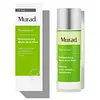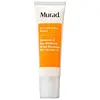What's inside
What's inside
 Key Ingredients
Key Ingredients

 Benefits
Benefits

 Concerns
Concerns

 Ingredients Side-by-side
Ingredients Side-by-side

Water
Skin ConditioningCaprylic/Capric Triglyceride
MaskingC13-16 Isoparaffin
SolventGlycolic Acid
BufferingSimmondsia Chinensis Seed Oil
EmollientTriolein
Skin ConditioningGlycerin
HumectantSodium Hydroxide
BufferingPropylene Glycol Caprylate
Skin ConditioningLactic Acid
BufferingMalic Acid
BufferingTranexamic Acid
AstringentSalicylic Acid
MaskingSodium Hyaluronate
HumectantBisabolol
MaskingTocopheryl Acetate
AntioxidantOcimum Sanctum Leaf Extract
Skin ConditioningMelia Azadirachta Leaf Extract
Skin ConditioningMelia Azadirachta Flower Extract
Skin ConditioningAmino Esters-1
Skin ConditioningAmber Powder
Coccinia Indica Fruit Extract
Skin ConditioningSolanum Melongena Fruit Extract
Skin ConditioningCurcuma Longa Root Extract
MaskingCorallina Officinalis Extract
Skin ConditioningMoringa Oleifera Seed Oil
EmollientUrea
BufferingYeast Amino Acids
HumectantTrehalose
HumectantInositol
HumectantTaurine
BufferingBetaine
HumectantCaprylhydroxamic Acid
Propanediol
Solvent1,2-Hexanediol
Skin ConditioningWater, Caprylic/Capric Triglyceride, C13-16 Isoparaffin, Glycolic Acid, Simmondsia Chinensis Seed Oil, Triolein, Glycerin, Sodium Hydroxide, Propylene Glycol Caprylate, Lactic Acid, Malic Acid, Tranexamic Acid, Salicylic Acid, Sodium Hyaluronate, Bisabolol, Tocopheryl Acetate, Ocimum Sanctum Leaf Extract, Melia Azadirachta Leaf Extract, Melia Azadirachta Flower Extract, Amino Esters-1, Amber Powder, Coccinia Indica Fruit Extract, Solanum Melongena Fruit Extract, Curcuma Longa Root Extract, Corallina Officinalis Extract, Moringa Oleifera Seed Oil, Urea, Yeast Amino Acids, Trehalose, Inositol, Taurine, Betaine, Caprylhydroxamic Acid, Propanediol, 1,2-Hexanediol
Butyl Methoxydibenzoylmethane 3%
UV AbsorberHomosalate 6.5%
Skin ConditioningEthylhexyl Methoxycinnamate 7.5%
UV AbsorberEthylhexyl Salicylate 5%
UV AbsorberBenzophenone-3 2%
UV AbsorberWater
Skin ConditioningButylene Glycol
HumectantStearic Acid
CleansingDiisopropyl Sebacate
EmollientCocoglycerides
EmollientLauryl Lactate
EmollientGlyceryl Stearate
EmollientPEG-100 Stearate
Isodecyl Neopentanoate
EmollientDimethicone
EmollientCetyl Alcohol
EmollientCetyl Phosphate
EmulsifyingUrea
BufferingYeast Amino Acids
HumectantTrehalose
HumectantInositol
HumectantTaurine
BufferingBetaine
HumectantPhospholipids
Skin ConditioningRetinyl Palmitate
Skin ConditioningTocopheryl Acetate
AntioxidantAscorbyl Palmitate
AntioxidantPelvetia Canaliculata Extract
Skin ProtectingEctoin
Skin ConditioningGinkgo Biloba Leaf Extract
Skin ConditioningVitis Vinifera Seed Extract
AntimicrobialPassiflora Incarnata Extract
AstringentTetrahexyldecyl Ascorbate
AntioxidantSodium PCA
HumectantPanthenol
Skin ConditioningTripleurospermum Maritimum Extract
Skin ProtectingZinc Gluconate
Skin ConditioningEthyl Linoleate
EmollientMagnesium Aluminum Silicate
AbsorbentXanthan Gum
EmulsifyingAminomethyl Propanol
BufferingDisodium EDTA
Phenoxyethanol
PreservativeCaprylyl Glycol
EmollientChlorphenesin
AntimicrobialLimonene
PerfumingLinalool
PerfumingParfum
MaskingCI 15985
Cosmetic ColorantCI 17200
Cosmetic ColorantButyl Methoxydibenzoylmethane 3%, Homosalate 6.5%, Ethylhexyl Methoxycinnamate 7.5%, Ethylhexyl Salicylate 5%, Benzophenone-3 2%, Water, Butylene Glycol, Stearic Acid, Diisopropyl Sebacate, Cocoglycerides, Lauryl Lactate, Glyceryl Stearate, PEG-100 Stearate, Isodecyl Neopentanoate, Dimethicone, Cetyl Alcohol, Cetyl Phosphate, Urea, Yeast Amino Acids, Trehalose, Inositol, Taurine, Betaine, Phospholipids, Retinyl Palmitate, Tocopheryl Acetate, Ascorbyl Palmitate, Pelvetia Canaliculata Extract, Ectoin, Ginkgo Biloba Leaf Extract, Vitis Vinifera Seed Extract, Passiflora Incarnata Extract, Tetrahexyldecyl Ascorbate, Sodium PCA, Panthenol, Tripleurospermum Maritimum Extract, Zinc Gluconate, Ethyl Linoleate, Magnesium Aluminum Silicate, Xanthan Gum, Aminomethyl Propanol, Disodium EDTA, Phenoxyethanol, Caprylyl Glycol, Chlorphenesin, Limonene, Linalool, Parfum, CI 15985, CI 17200
Ingredients Explained
These ingredients are found in both products.
Ingredients higher up in an ingredient list are typically present in a larger amount.
Betaine is a common humectant (a substance that promotes retention of moisture). It's known to be gentle on the skin and can help balance hydration.
This ingredient is best for improving hydration and soothing irritated skin. Studies also show it helps even out skin tone.
Fun fact: Betaine is naturally created in the skin and body. The kind found within cosmetic products can be either plant-derived or synthetic.
Another name for betaine is trimethylglycine.
Learn more about BetaineInositol is a sugar alcohol naturally found in the human body. Our bodies use this ingredient in the process of growing new cells.
Studies show inositol to be a key component for keratinocyte growth.
Keratinocytes make up the majority of the outermost layer of skin. These cells protect our skin from UV exposure, infection, and help keep skin hydrated.
This ingredient is also considered a humectant. Humectants help hydrate the skin by drawing moisture to it.
Learn more about InositolWe don't have a description for Taurine yet.
Tocopheryl Acetate is AKA Vitamin E. It is an antioxidant and protects your skin from free radicals. Free radicals damage the skin by breaking down collagen.
One study found using Tocopheryl Acetate with Vitamin C decreased the number of sunburned cells.
Tocopheryl Acetate is commonly found in both skincare and dietary supplements.
Learn more about Tocopheryl AcetateTrehalose is a disaccharide made of two glucose molecules (glucose is sugar!). Trehalose is used to help moisturize skin. It also has antioxidant properties.
As a humectant, trehalose helps draw moisture from the air to your skin. This helps keep your skin hydrated.
Due to its antioxidant properties, trehalose may help with signs of aging. Antioxidants help fight free-radical molecules, unstable molecules that may damage your skin.
In medicine, trehalose and hyaluronic acid are used to help treat dry eyes.
Some animals, plants, and bacteria create trehalose as a source of energy to survive freeze or lack of water.
Learn more about TrehaloseUrea is also called carbamide and is the diamide of carbonic acid. In cosmetics, urea is used to hydrate the skin. It also provides exfoliation in higher concentrations.
As a humectant, urea helps draw moisture from the air and from deep within the skin. This helps hydrate your skin. Studies show urea is an effective moisturizer for dry skin conditions. 40% urea is typical in medications for treating eczema and other skin conditions.
Urea has the strongest exfoliation effect in concentrations higher than 10%. It is a keratolytic agent, meaning it breaks down the keratin protein in the top layer of skin. This helps remove dead skin cells and flaking skin.
In medicine, urea has been shown to help increase the potency of other ingredients, such as fungal treatments.
Humans and animals use urea to metabolize nitrogen-containing compounds. Urea is highly soluble in water. Once dissolved, it is neither acidic nor alkaline.
Learn more about UreaWater. It's the most common cosmetic ingredient of all. You'll usually see it at the top of ingredient lists, meaning that it makes up the largest part of the product.
So why is it so popular? Water most often acts as a solvent - this means that it helps dissolve other ingredients into the formulation.
You'll also recognize water as that liquid we all need to stay alive. If you see this, drink a glass of water. Stay hydrated!
Learn more about WaterWe don't have a description for Yeast Amino Acids yet.